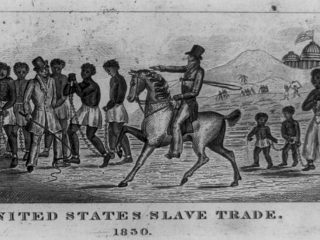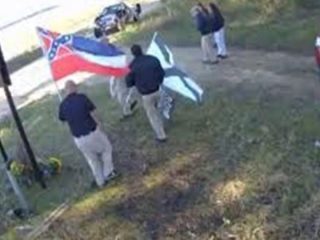On a recent Sunday morning, my wife and I went to a different church building than we normally go to in Utah. Her niece was leaving on a mission to Ukraine and so we went to her church building for what they call a “farewell”. Our church is the Church of Jesus Christ of Latter-day Saints. We’re a global church. The majority of our members are outside the United States and, believe it or not, people of color. Needless to say, this fact surprises a lot of people because the Church of Jesus Christ of Latter-day Saints (popularly known as Mormons although the press and members have been asked not to use that term) has been known as a “white” church for years… and deservedly so.
The Church of Jesus Christ of Latter-day Saints has gone to great lengths to change this perception; celebrating its diversity while being more inclusive. They have a long way to go but you have to start somewhere and oftentimes changes in attitudes and perceptions take a little while to make its way down to the congregation (in my film, “Black, White & Us” we talk about some of this while exploring racism through the lens of transracial adoptions in Utah).
One of the speakers that Sunday was a young lady in high school. Possessing way too much energy for nine o’clock in the morning, she jumped from her seat, pulled her hair from her face and smiled. There was the customary introduction of herself and the topic she chose. It was all seemingly normal.. and then she started her talk, “We have this car. We call her Sheniqua because it’s black.”
All around me, a good part of the congregation laughed. This wasn’t a “this-is-awkward-so-I’m-going-laugh” type laugh. No. This was a “we-all-understood-the-joke” type laugh.
Except it wasn’t funny and I wasn’t laughing.
For a couple of minutes, I sat there in the pew trying to process what this kid uttered and the congregation’s reaction. Did this really just happen? Curiosity got the best of me. Who were these people who laughed? I turned my head, it was a sea of white people.
The crossroads of race and religion in America has always been one fraught with racism. We will preach brotherly love on Sundays but not be our brother’s keeper for the rest of the week. Martin Luther King, Jr. once said, “It is appalling that the most segregated hour of Christian America is eleven o’clock on Sunday morning.”
So, why did she say this about her car and why did the congregation laugh? A lot of people name their cars like they name a pet. They give it a name that reflects their personality. The car was a family car. It’s not a stretch of the imagination to believe the family sat around one evening after making this big purchase and, with a tinge of excitement, started throwing out ideas. Then someone said, “Let’s call it Sheniqua because it’s black.” The family laughed, the parents didn’t protest and the name stuck. And why not. It’s an object that is black and they owned it. Subconsciously, it all fits in the narrative and since no one said it was bad it wasn’t racist. It was just a joke.
White people do this. They say something racist and as long as no one says anything to the contrary they can safely say it wasn’t racist. Besides, if it was racist then someone would have said something because racism is bad but hey don’t see themselves as bad because they aren’t racist. And know this, white people know racism when they see it. They just don’t see it in themselves. Approval affirms it doesn’t exist.
Laughter is a sign of approval and the congregation willingly offered it up not because it was particularly funny but because someone said what they were all thinking. A child saying it only makes it funnier and even “cute”. Even if a black person was in the room they would probably still laugh and then tell that person to lighten up. Clearly, it was a “joke” because “everyone” laughed. The black person might even laugh themselves out of self-preservation. This is how it works.
The girl should know better but she doesn’t. The car was purchased in 2013. She would’ve been nine or ten years old. What else would she know? Her strongest influencers didn’t take the opportunity to teach her differently because they didn’t see it as racist (and if one of the children came up with the idea instead of an adult they wouldn’t want to make the child look or feel “bad” for saying something racist). Her peers would’ve rolled along with it because, as teenagers, they don’t want to stand out from the crowd and now her neighbors all validated it by laughing.
Now, I know some of you might be thinking this was an isolated incident and I shouldn’t read too much into it but as the scriptures teach us, “in the mouth of two or three witnesses every word may be established.” (Matt. 18:16)
I related this story to a friend and she said, “You’re not going to believe this. The same thing happened at my church [Latter-day Saint].” It was during what is called a Primary Program. Instead of speakers, it’s the little kids’ turn. There are songs and rehearsed lines that kids read so they don’t go off on some wild tangents. An eight-year-old girl approaches the microphone and, reading what her leaders gave her and what she practiced in front of her parents, said, “I am thankful I can feel the Holy Ghost and that others can too… even in Africa.”
Don’t kid yourself, this is not unique to members of the Church of Jesus Christ of Latter-day Saints nor to Utah. This is an American thing. This is a white thing. And it’s not funny.




